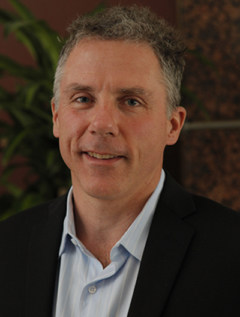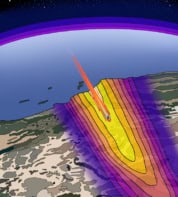Available to watch now, The Electrochemical Society in partnership with Admiral Instruments, ACS Photonics and Gamry Instruments, explores using sunlight as a resource
Want to take part in this webinar?
Sunlight is an inexhaustible resource. Harnessing its power could drive a circular economy to generate energy, reduce carbon emissions, reduce materials waste, and eventually to generate the negative carbon emissions needed to bring our warming planet back into balance.
 This webinar will explore opportunities in high-efficiency photovoltaics and artificial photosynthesis, and in particular, the generation of chemical fuels from sunlight by reduction of carbon dioxide.
This webinar will explore opportunities in high-efficiency photovoltaics and artificial photosynthesis, and in particular, the generation of chemical fuels from sunlight by reduction of carbon dioxide.
This webinar presented by Harry Atwater will discuss:
- New perspectives on future opportunities for photovoltaics.
- An outlook for synthesis of hydrogen by photoelectrochemical water splitting.
- Survey of directions for renewable fuels from the reduction of carbon dioxide.
Want to take part in this webinar?
 Harry Atwater is the Howard Hughes professor of applied physics and materials science at the California Institute of Technology. Atwater’s scientific interests have two themes: light-matter interactions in materials and solar-energy conversion. Atwater was an early pioneer in nanophotonics and plasmonics; he gave the name to the field of plasmonics in 2001. He has created new high-efficiency solar-cell designs and has pioneered principles for light management in solar cells. He currently serves as director of the Joint Center for Artificial Photosynthesis, a Department of Energy (DOE) hub.
Harry Atwater is the Howard Hughes professor of applied physics and materials science at the California Institute of Technology. Atwater’s scientific interests have two themes: light-matter interactions in materials and solar-energy conversion. Atwater was an early pioneer in nanophotonics and plasmonics; he gave the name to the field of plasmonics in 2001. He has created new high-efficiency solar-cell designs and has pioneered principles for light management in solar cells. He currently serves as director of the Joint Center for Artificial Photosynthesis, a Department of Energy (DOE) hub.
Atwater is a member of the US National Academy of Engineering and is also a Fellow of the APS, MRS, SPIE and the National Academy of Inventors. He is the founding editor-in-chief for the journal ACS Photonics and is an associate editor for the IEEE Journal of Photovoltaics. In 2006 he co-founded the Gordon Research Conference on Plasmonics, which he served as chair in 2008. He was also the founding director of the Resnick Sustainability Institute at Caltech, and strategic director for the QESST photovoltaics NSF Engineering Research Center. Atwater was the co-founder of Alta Devices, whose technology holds the current world records for one Sun single junction solar cell efficiency and module efficiency. He also serves as chair of the LightSail Committee for the Breakthrough Starshot programme.
Atwater has been honoured by awards, including: Clarivate Highly Cited Researcher (2014–2020); IEEE William R Cherry Award (2019); Kavli Innovations in Chemistry Lecture Award, American Chemical Society (2018); APS David Adler Lectureship for Advances in Materials Physics (2016); Julius Springer Prize in Applied Physics (2014); Fellowship from the Royal Netherlands Academy of Arts and Sciences (2013); ENI Prize for Renewable and Nonconventional Energy (2012); SPIE Green Photonics Award (2012); MRS Kavli Lecturer in Nanoscience (2010); and the Popular Mechanics Breakthrough Award (2010).
He served as president of the Material Research Society in 2000 and as trustee of the Gordon Research Conferences. Atwater received his BS, MS and PhD from the Massachusetts Institute of Technology respectively in 1981, 1983 and 1987. He held the IBM Postdoctoral Fellowship at Harvard University from 1987–1988 and has been a member of the Caltech faculty since 1988, where he teaches graduate-level applied physics classes in nanophotonics, solid-state physics and device physics.







